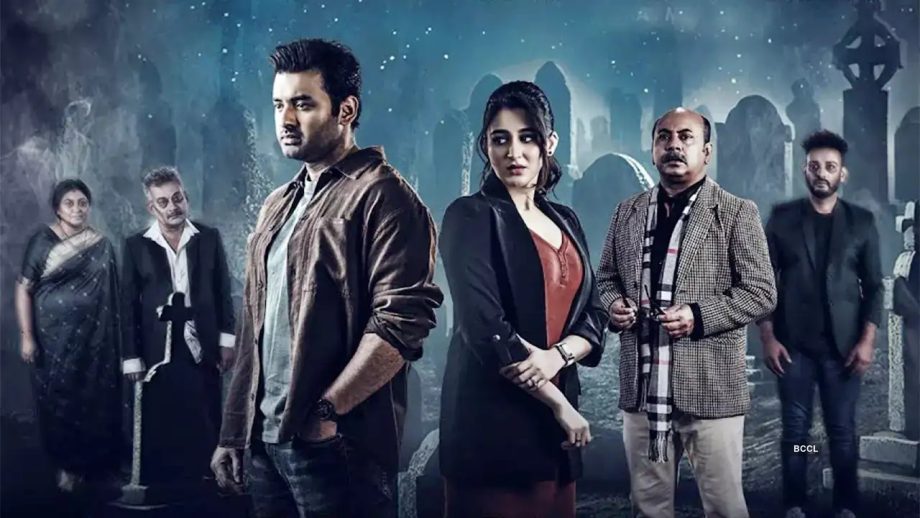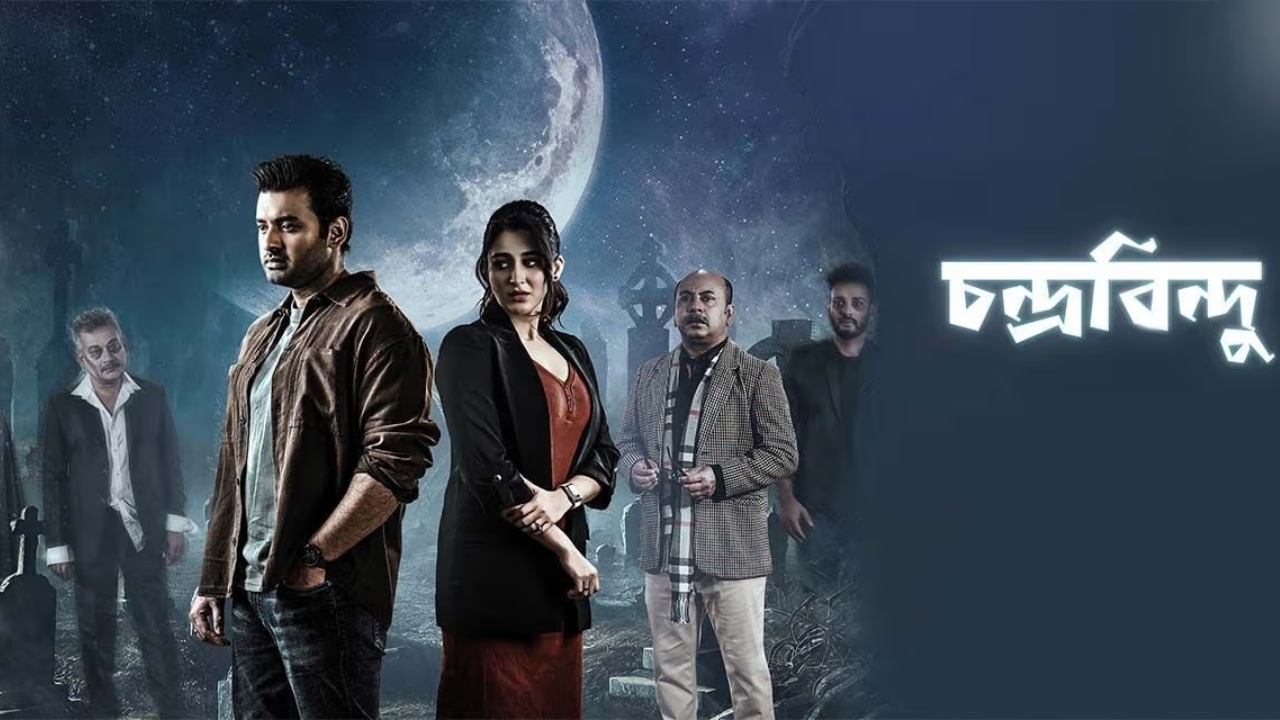Chandrabindoo isn’t the kind of film that hits you all at once. It unsettles you. You walk out of it a little quieter than you walked in. The film talks of life, death…but then what? What awaits you after that?
What strikes you most wasn’t the story itself but how it felt. Chandrabindoo opens a window into that quiet space where memory lives—and maybe, just maybe, where the dead still find a way to stay close.
Raja Chanda, usually known for lighter, commercial work, surprises here. He strips everything down, showing no big drama or loud emotion. You witness mood, silence, and the ache of things left unsaid. It’s a brave shift that works because he doesn’t try to over-direct. He trusts the atmosphere, and more importantly, he trusts the feeling.
The story is centred on a young man, played beautifully by Ankush Hazra, who seems stuck somewhere between living and remembering. He wears his sorrow. It’s there in how he hesitates before speaking or walks like he’s carrying more than his weight. You can feel him straining to stay connected to something slipping away. It’s one of his strongest performances, quiet and internal but heavy with meaning.

Oindrila Sen brings something equally grounded. We do not see a lot of articulated grief here; she embodies it. She holds the kind of silence that comes from a profound loss, the kind that never quite leaves you. She doesn’t fall into melodrama, which would have been easy here. Instead, she stays real. That honesty makes her moments with Hazra even more affecting—there’s pain and a deep, shared tenderness.
What elevates Chandrabindoo is the way it plays with the idea of presence. They are not ghosts in the traditional sense but more emotional and haunting. A parent remembering a son. A man replaying things he never got to say. A cemetery that doesn’t feel scary so much as sacred.
The film asks something very human—what if the people we’ve lost never actually leave us? What if they find ways to stay close in the quietest ways possible?
Visually, it leans into a kind of Gothic softness—faded light, still rooms, a feeling that something’s always just out of frame. It’s not horror. It’s not even supernatural. It’s more spiritual.
That sense of “something else” is always there, not to scare, but to comfort.
It reminded me of how grief can surprise us—how a scent, a song, or a random street corner can feel like someone saying hello from the other side.
Anupam Roy’s music never overwhelms. It slips in when needed, holds a feeling, and then moves on like the film itself.
This isn’t a perfect movie. Some scenes linger a little too long, and the narrative sometimes drifts. But life does, too, especially when you’re grieving. Chandrabindoo mirrors that emotional rhythm, honestly.
It’s not a film for everyone. But if you’ve ever found yourself talking to someone who isn’t here anymore, you’ll understand it. And maybe even find comfort in it.
IWMBuzz rates it 4 stars.

